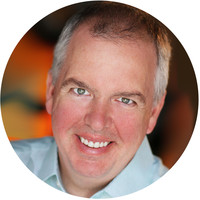The Saudi government this week announced the upgrading of the sound system used by Mecca's grand mosque, Al-Masjid Al-Haram, to provide improved service to Muslims visiting the holy city during the annual hajj. With the addition of 4,000 new speakers, pilgrims will be able to hear the services up to 6 miles away. Approximately 4 million Muslims will participate in the hajj this October.
Unsurprisingly, this audio upgrade, together with other attempts at modernizing the holy city, have proved to be controversial in some quarters. The $2 billion renovation plans are designed to allow up to 2 million people to worship at Al-Masjid Al-Haram. The Saudi royal family takes great pride in its role as custodian of the two holiest cities in Islam — Mecca and Medina. However, this has not made them immune to criticism that the extensive redevelopment of historic locations has been done in a brash and tasteless manner. In recent years, luxury hotels and shopping malls were built on important sites.
Striking the right balance between tradition and progress is always hard, and the tension between the two is by no means solely a dilemma for the West. Middle Eastern and Asian cultures also wrestle with difficult choices between looking backward and looking forward.
The money being spent on making Mecca state-of-the-art for the upcoming hajj might lead one to believe that members of the Saudi government are particularly pious. Of course, they display the same scope for misbehavior as the rest of mankind. For example, the British Foreign and Commonwealth Office revealed this week that two Saudi diplomats used their diplomatic immunity to avoid being arrested and charged with drunken driving. They were able to avoid the criminal consequences of their actions, but it is useful to remember that being caught in possession of alcohol in Saudi Arabia can result in a punishment of 800 lashes. Ouch!
Critics of Saudi Arabia could point to the unpunished crimes of the London diplomats as evidence that, rather than piousness, the higher tiers of Saudi society are good examples of brazen hypocrisy. Despite their country's vast oil wealth, many Saudi citizens live in poverty and face high rates of unemployment. The tales of playboy royals living lavish lifestyles with little accountability for the money they spend and the choices they make are a world away from the millions who struggle every day to make their life in a repressive theocratic dictatorship.
One of the great ironies in the Middle East today is that despite the distorting effect of the two opposing theocratic hegemons in the region — Saudi Arabia, with its extreme vision of Sunni Islam, and Iran, with its similarly strict version of Shiite Islam — much of the population faces mounting challenges that have very little to do with religious nuances. Despite the vast differences in goals and aspirations along the corridors of power in Tehran and Riyadh, it was interesting to see earlier this month how the two de facto enemies were recently able to find common cause when facing the consequences of Iraq's stunning collapse to the Islamic State. As the Saudi army reinforced the country's border with wobbly Iraq, Iran and Saudi Arabia began talks on how to bring stability to their mutual neighbor. This supposedly included discussions on who could replace the current prime minister of Iraq, Nouri al-Maliki, who now appears unfit for the threats currently facing his country.
What is remarkable about this diplomatic rapprochement is how it reveals the level of desperation that leaders in both countries must be facing. In light of Tehran's support for al-Maliki over the past eight years, those in the Iranian government's willingness to sit down across a table from their Saudi counterparts is a clear sign of the Islamic State's success in unraveling the status quo.
We are just over halfway through Ramadan, the monthlong fast that is the centerpiece of the Muslim calendar. Devout Muslims of all social, ethnic and philosophical stripes must sail between the Scylla of state-sponsored interpretations of their religion, which are being wielded for political ends, and the Charybdis of extremist groups preaching their unique brands of jihad.
The importance of Mecca and the hajj to Islamic religious practice is clear and incontrovertible. Saudi authorities have a responsibility to the 4 million pilgrims who will visit later this year to provide for a country that is both safe and suitable for the solemnity of their religious observances.
There are quite possibly significant benefits from the new system of speakers and amplifiers being installed to make the calls to prayer crisply heard by all. But what these audio improvements do not provide is an excuse or a justification for Saudi policy either at home or abroad.
Timothy Spangler is a writer and commentator who divides his time between Los Angeles and London. His radio show, "The Bigger Picture with Timothy Spangler," airs every Sunday night from 10 p.m. to midnight Pacific time on KRLA AM 870. To find out more about Timothy Spangler and read features by other Creators Syndicate writers and cartoonists, visit the Creators Syndicate Web page at www.creators.com.






View Comments